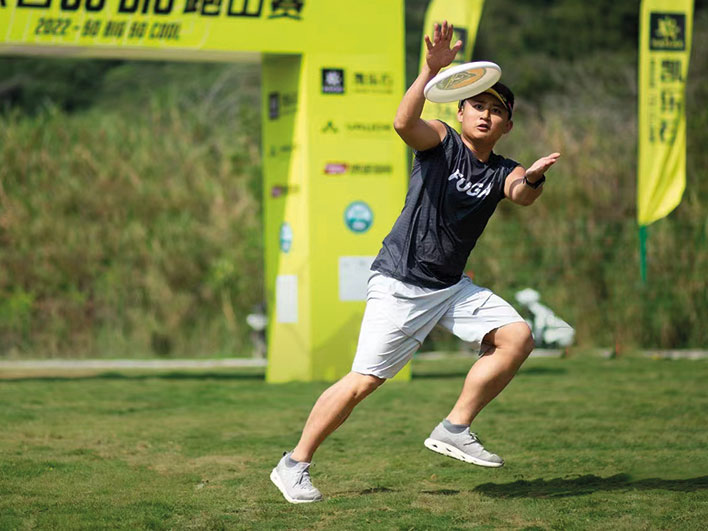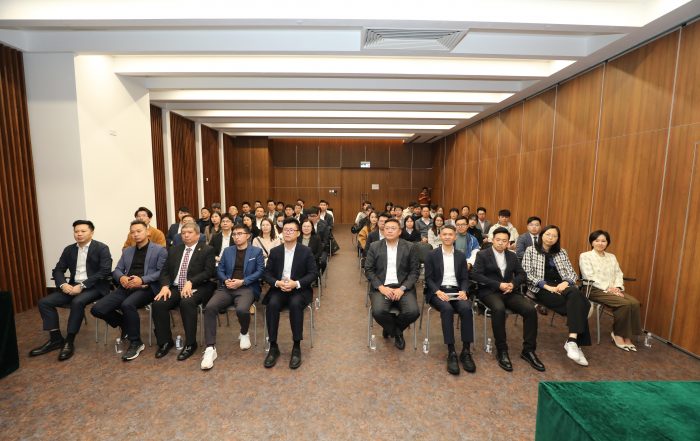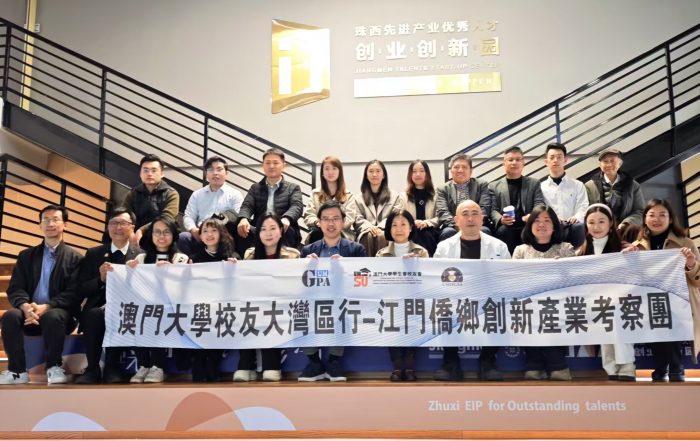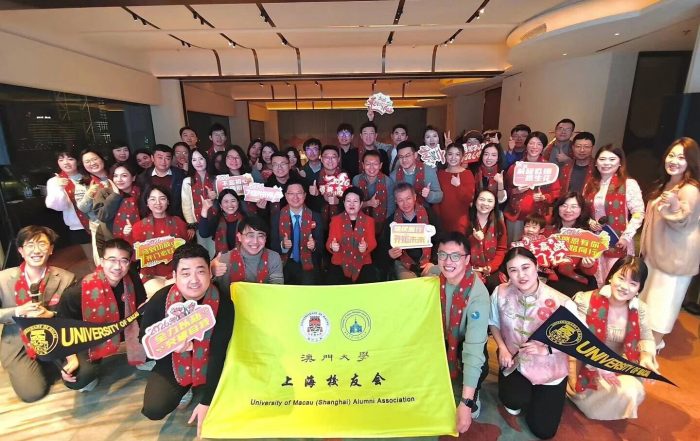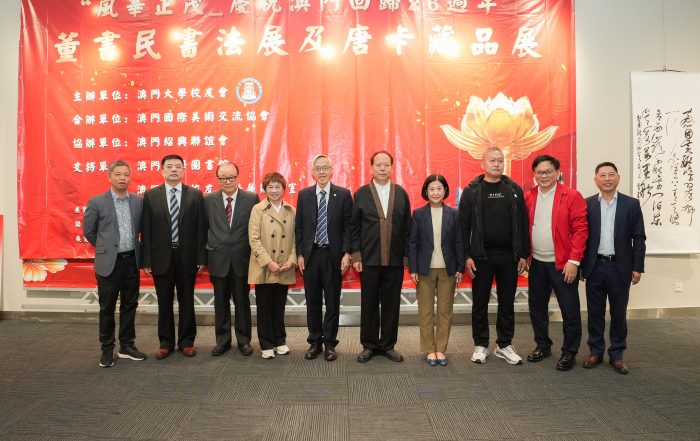‘ME TO WE’ Outdoor Leadership Programme
During his second year at UM, Cheng, a student from Taiwan, joined the ‘ME TO WE’ outdoor leadership programme run by resident fellow Miker Cheang. The programme included training and a certification course for associate guides of experiential education, training for rope access technicians, as well as overseas expedition and service-learning. As a member of the programme, Cheng learned various outdoor skills, such as risk management, first aid, tent building, and outdoor cooking. He also rode on a bicycle around the Taiwan island and climbed the mountains there with his team members. These experiences changed him little by little: ‘The changes were not felt right away, but later on I realised I had become more serious and attentive. Mikerʼs attention to safety and details during the rope course might have a strong influence on me.’
Currently working in the field of outdoor education, Cheng never forgot Cheang’s teachings. ‘In addition to techniques, I have also learned his philosophy of education,’ says Cheng. ‘Miker has shown me that itʼs not easy to be a good teacher – on one hand, you canʼt be too hard on your students, and on the other hand, you have to stick to your teaching philosophy.’ He adds that he was impressed by Cheangʼs tendency to reflect on his own shortcomings: ‘He once criticised me for being careless, but a few days later he came to talk to me and pointed out the shortcomings in his teaching. He likes to learn from his mistakes and share his thoughts with us.’
Searching for the Value of Education in College
Cheng believes UM’s residential college (RC) education created a one-of-a-kind experience for him. Before attending UM, he thought of the RC as nothing more than a dormitory building. However, he changed his mind when he saw how the RC staff and students welcomed him and the other new students. He also appreciates that the RCs encourage students to organise activities: ‘I enjoy cooking very much, so during my first year I negotiated with the college administration to set up a space for sharing food. As long as the idea was feasible, our RC would help us put it into practice.’ After graduation, CKPC emailed him and his classmates from time to time, inviting them to participate in events. ‘Once I returned to the college for an activity. The RC members greeted me warmly and made me feel that I am a part of the family,’ says Cheng.
In his fourth year at UM, Cheng took a course in sociology of education offered by the Faculty of Education. ‘The course was taught by Prof Vong Sou Kuan, who gave an overview of education and the important role of teachers in society. To tell the truth, I grew up hating teachers because they were very annoying and always pushed me to study hard,’ says Cheng. ‘After taking this course, I realised that my teachers all had good intentions. I also seem to have a deeper understanding of education these days, as I am sometimes referred to as “teacher” at work.’
From a Hobby to a Job
Before graduation, Cheng planned to work in luxury retail, until one day his roommate suggested that he should pursue a career in outdoor activities. ‘Although people often say you canʼt make a career out of a hobby because it may kill your love for the hobby, I listened to my heart and tried to make a career out of outdoor activities,’ says Cheng.
Always a risk-taker, Cheng joined an outdoor education company in the mainland after graduation and began working at its headquarters in Guangzhou. His focuses include outdoor education for the youth, adult vocational training, and training programmes organised by an expedition activities provider for the Duke of Edinburghʼs International Award. He has now obtained his national professional qualification in rock climbing, a level 2 certificate from the American Canoe Association, and also holds a camping instructor certificate from the Chinese Mountaineering Association. In the past year, he has led different groups to explore primitive caves in Baise in the Guangxi autonomous region, hike on Mount Danxia in Shaoguan, kayak in the Wanlu Lake in Heyuan, as well as camp on a deserted island in Shanwei. On the day of the interview, he was about to take the management of a mainland company to the Qin mountains for a ten-day trip.
Cheng admits that the job takes a lot of energy. During the National Day holidays in 2021, he led an 11-day hiking tour with a heavy pack. They first visited Huizhou and then travelled in the Danxia range in Shaoguan. ‘There was a typhoon during the trip. The heat was unbearable every day before the typhoon’s arrival, and it rained continuously for a few days afterwards. Despite all this, the participants remained motivated and it left a deep impression on me,’ says Cheng.
Pursuing Growth Outdoors
At the beginning of his career, Cheng thought of himself as no more than an activity guide. He only changed his mind when some children referred to him as ‘teacher’ during an event last summer. ‘The title of “teacher” seemed to have given me more responsibility. From then on, I felt that my job was not simply to conduct activities by following a schedule, but also to lead the participants to pursue their growth. It reminded me of Miker, my college, and the classes in sociology of education I took at UM,’ says Cheng.
According to Cheng, most of the participants in his activities are accustomed to city life and may not be used to the outdoor environment at first. ‘In the middle of a difficult activity such as mountain climbing, some participants might start to wonder why they have chosen to come in the first place. The self-doubt may linger until they discover the wonder of nature,’ says Cheng. ‘Their mood may also change along with the weather, especially at the top of the mountain where one minute it’s sunny and the other minute it’s gloomy,’ says Cheng.
From taking part in activities in the RC to developing a career out of a hobby, Cheng has discovered his true love and understands why outdoor education is fascinating. ‘The industry has a bright future in mainland China so I want to continue to work in this field, obtain more licenses, and organise more types of outdoor activities,’ says Cheng. ‘I have gained a lot from the “ME TO WE” programme and would love to help more people get involved in outdoor activities to pursue their development in nature.’
Source: ISSUE 114 May My UM


